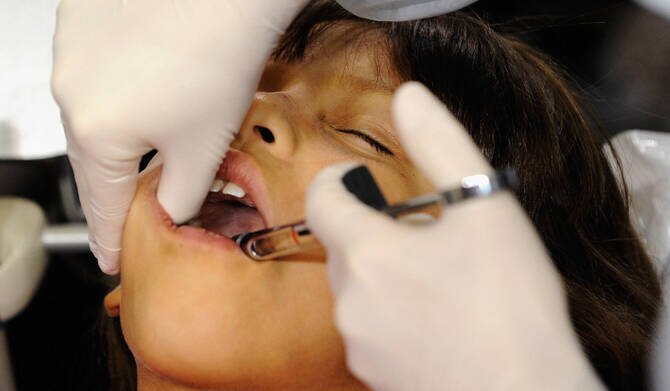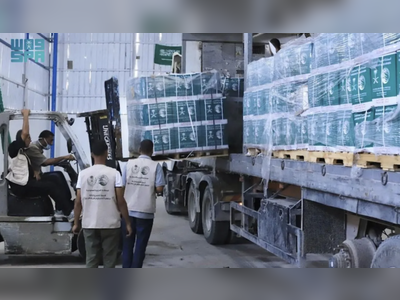
Countries Agree to End Mercury Tooth Fillings by 2034
Nations Unite to Phase Out Dental Amalgam in Bid to Reduce Mercury Pollution Worldwide.
At a conference held in Geneva, countries have unanimously agreed to phase out the use of mercury-based dental amalgams in tooth fillings by 2034.
This landmark agreement marks a significant shift in global dentistry practices aimed at reducing mercury pollution and protecting human health.
The World Health Organization identifies mercury as one of the top 10 chemicals posing major public health risks due to its toxic nature.
In response, signatories to the Minamata Convention on Mercury, an international treaty established in 2013, have committed to this phase-out to ensure a safer future for communities worldwide.
While some countries have already prohibited the use of dental amalgam, a common filling material that has been used since the mid-19th century, the global consensus establishes a clear timeline toward eliminating its use entirely by 2034.
This decision follows ongoing efforts to reduce mercury's harmful effects on both human health and the environment.
The treaty already required signatory countries to take measures to gradually phase out dental amalgam; however, several African nations advocated for a more definitive action plan, including banning its production, import, and export starting in 2030.
Despite opposition from a few countries like Iran, India, and Britain on the proposed deadline of 2030, consensus was reached with an agreement to phase out mercury fillings by 2034.
This decision represents a pivotal moment in mercury policy, bringing nations together to address concerns over its environmental impact and health risks.
The EU, Mexico representing Latin American and Caribbean countries, and others hailed the agreement as both ambitious and necessary for a future free from mercury's harmful effects.
In addition to dental amalgam, the conference addressed other significant sources of mercury pollution, including skin-lightening cosmetics and small-scale gold mining practices.
Efforts are now underway to combat the use of these products, particularly through enhanced enforcement against the illicit trade in mercury.
The Minamata Convention's executive secretary, Monika Stankiewicz, emphasized that while the road ahead will be challenging, the collective action taken at this conference marks a new chapter in global efforts to manage and eventually eliminate mercury pollution.
The agreement encompasses 21 decisions aimed at protecting human health and the environment from mercury risks, showcasing a unified international commitment to addressing these pressing environmental issues.
This landmark agreement marks a significant shift in global dentistry practices aimed at reducing mercury pollution and protecting human health.
The World Health Organization identifies mercury as one of the top 10 chemicals posing major public health risks due to its toxic nature.
In response, signatories to the Minamata Convention on Mercury, an international treaty established in 2013, have committed to this phase-out to ensure a safer future for communities worldwide.
While some countries have already prohibited the use of dental amalgam, a common filling material that has been used since the mid-19th century, the global consensus establishes a clear timeline toward eliminating its use entirely by 2034.
This decision follows ongoing efforts to reduce mercury's harmful effects on both human health and the environment.
The treaty already required signatory countries to take measures to gradually phase out dental amalgam; however, several African nations advocated for a more definitive action plan, including banning its production, import, and export starting in 2030.
Despite opposition from a few countries like Iran, India, and Britain on the proposed deadline of 2030, consensus was reached with an agreement to phase out mercury fillings by 2034.
This decision represents a pivotal moment in mercury policy, bringing nations together to address concerns over its environmental impact and health risks.
The EU, Mexico representing Latin American and Caribbean countries, and others hailed the agreement as both ambitious and necessary for a future free from mercury's harmful effects.
In addition to dental amalgam, the conference addressed other significant sources of mercury pollution, including skin-lightening cosmetics and small-scale gold mining practices.
Efforts are now underway to combat the use of these products, particularly through enhanced enforcement against the illicit trade in mercury.
The Minamata Convention's executive secretary, Monika Stankiewicz, emphasized that while the road ahead will be challenging, the collective action taken at this conference marks a new chapter in global efforts to manage and eventually eliminate mercury pollution.
The agreement encompasses 21 decisions aimed at protecting human health and the environment from mercury risks, showcasing a unified international commitment to addressing these pressing environmental issues.










